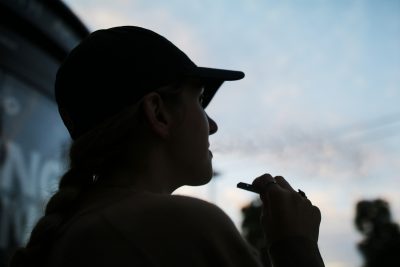
A federal judge denied an attempt by an e-cigarette industry group to halt Massachusetts’ vaping ban, keeping Massachusetts Governor Charlie Baker’s four month long total restriction on the sale of all e-cigarette products alive, for now.
The industry group, called the Vapor Technology Association, filed a federal lawsuit against the vaping ban last week in the U.S. District Court of Massachusetts, claiming that the restrictions will destroy Massachusetts’ growing vaping industry, which was valued at $331 million and employs 2,500 people, according to VTA’s complaint.
The VTA also filed for a temporary restraining order on the ban, hoping to force Baker to lift the restrictions while the case is being litigated in court. However, U.S. District Judge Indira Talwani rejected this motion, saying that the VTA did not present enough evidence to justify the hold.
“The court finds further that granting the request for a temporary restraining order would conflict with the public interest,” according to Talwani’s ruling.
However, this is not yet the end of the line for the VTA, as Talwani scheduled a hearing on Oct. 15 where lawyers for both sides will present their arguments on whether the court should issue a preliminary injunction halting the ban, according to Reuters.
Along with the VTA, the lawsuit cited several e-cigarette store operators as plaintiffs, including Ian Devine of Devine Enterprise Inc, Christopher Sun of Rising Sun Vapors LLC and Adam Webster of The Steam Co. LLC, according to VTA’s complaint.
Mark Gottlieb, a professor of law at Northeastern University and executive director of the university’s Public Health Advocacy Institute, said that current research points to cannabis vaping products as the likely culprit for the rise in vaping-related illnesses.
“I think there has been a fair amount of attention on THC vaping products as a likely source of the acute lung injury,” Gottlieb said. “But I think, as the CDC issued a statement last week, it’s still not entirely clear which products are most at fault.”
Gottlieb said a lawsuit against New York’s ban on flavored nicotine vape products actually succeeded in convincing the judge to issue a temporary restraining order on the ban, while a similar push to delay Massachusetts’ restrictions likely failed because Baker’s ban included products that contain THC.
“New York doesn’t have that same kind of recreational sale of THC vape products that Massachusetts has,” Gottlieb said. “ … And I think the plaintiffs there were able to convince the court that the risk of irreparable harm was great for the vape shops. And it wasn’t entirely clear, at least to that court, that the nicotine products were causing the incidence of acute lung injury.”
Gottlieb said the current panic surrounding vaping came after e-cigarettes exploded in popularity among teenagers, especially after the advent of vaping brand JUUL and that the Public Health Advocacy Institute has filed a class action lawsuit against JUUL Labs on behalf of Massachusetts teens that became addicted to nicotine from using JUUL’s products.
Gottlieb said he expects that more than half of the e-cigarette shops across the state would not survive the ban, as many are small, family-owned businesses. However, Gottlieb said that he agrees with the Judge Talwani’s reasoning that the ban’s potential to save lives justifies the harm that it does to e-cigarette stores.
“The irreparable harm of having one or more vape shops close doesn’t really compare to the risk that one or more teens may be hospitalized or could lose their life as a result of a lung injury from vaping,” Gottlieb said.
Although Massachusetts maintains the strictest vaping ban in the U.S., other states, including Michigan, New York and Rhode Island, are all taking steps to limit the variety of vaping products on the market. As of Monday, there were a total of 23 deaths were confirmed to have been caused by vaping, one of which was in Massachusetts, according to the New York Times.
Rebekah Novinger, 21, of Allston, said she supports the Baker’s decision to ban all vaping products in Massachusetts.
“I think it to try to help people figure out what’s going on and protect them from potential harm,” Novinger said. “That seems really wise.”
Merralee Morrison, 50, of Somerville, said the ban does too much harm to many of the smaller, family owned vape shops that opened across the state in recent years.
“There are a lot of just independent run businesses that just do vaping for over 21,” Morrison said. “So [the ban is] going to hurt them. Convenience stores, they have other things to sell, but for these independent stores, that kills them.”
















































































































